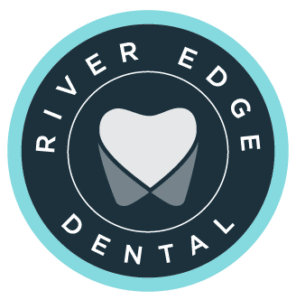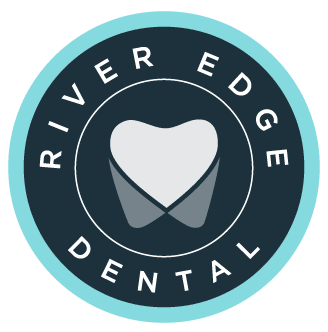Some amount of tooth wear is normal in life. Few of us make it through our 20s with the small bumps on our front teeth (known as mamelon) intact. And pretty much no one makes it through their life with these delicate structures intact. Although teeth are very strong, contact with foods will, over time, wear away even the hard enamel.
But although some normal wear is expected, excessive tooth wear is a serious threat to your teeth. As teeth become worn down, you may experience sensitivity, chronic pain, chipped teeth, cracked teeth, and infected teeth. Ideally, we want to notice extreme tooth wear before this happens.
So what should you look out for to tell if your tooth wear is worrisome?
Your Teeth Are More Worn Than Other People Your Age
As we said, some tooth wear is normal, but you can gauge whether your tooth wear is abnormal by comparing it to the wear on other people’s teeth.
Admittedly, exact measurement of this is hard, but one thing to consider is the relative length of your different teeth. For most people, the central incisors are longer than the laterals when they first emerge. Look at other people your age. Do most people still have longer centrals than laterals? Now, what about you? If your teeth are the same length while others have longer teeth, you may have excessive wear.
Another indicator of excessive wear is found in people who have crooked teeth. With crooked teeth, you often end up with one or more teeth that aren’t actively involved in chewing because they’re out of the plane with other teeth. If these teeth are noticeably longer than your other teeth, you might have excessive tooth wear (and should consider orthodontics).
Is Tooth Wear Increasing?
For most people, tooth wear occurs at a fairly constant rate. You’re biting and chewing similar foods every day, and as you get older this continues. If anything, tooth wear might slow with age.
But if tooth wear is related to a bad bite or parafunctional habits like bruxism, then your tooth wear might speed up over time. When you have an unhealthy jaw position, it puts excessive force on certain teeth. As these teeth wear down in response to that pressure, the jaw can move more and more out of position, increasing the pressure and/or redistributing it.
If your tooth wear seems to be increasing over time, then you probably want to talk to a neuromuscular dentist about it.
Visible Signs of Tooth Wear
You will often see visible signs of the wear and stress your teeth are experiencing. One sign of stress is craze lines: vertical cracks in your teeth. These aren’t harmful in and of themselves, but they’re unattractive and they may be a sign of things to come.
Another visible sign of tooth wear is being able to see the dentin in your teeth. This looks like a more dun-colored tissue in contrast to the whiteness of the enamel. As the tooth wears down, this becomes visible on the chewing surfaces.
You might also notice that your teeth are losing their rises and grooves as wear takes its toll on teeth. Especially worrying are when smooth places begin to appear and sharp rises start to disappear on your back teeth.
Cracking, Chipping, and Discomfort
With the modern diet, normal tooth wear doesn’t destroy teeth. There’s nothing in our food that’s so hard it can be really destructive. If tooth wear is destroying your teeth, your tooth wear definitely needs attention.
Some signs that tooth wear is destroying your teeth include:
Chipped teeth
Cracked teeth
Frequent reconstructive dentistry
Tooth sensitivity to temperature or pressure
Spontaneous tooth pain
If you experience these effects regularly or on a recurring basis, then it’s time to talk to a dentist about your tooth wear.
Making Your Teeth Last a Lifetime
At River Edge Dental, we want to make sure our entire dental family enjoys a beautiful, healthy smile for life. That means combating tooth decay and gum disease that threaten teeth, but it also means treating and preventing tooth wear.
TMJ dentist Dr. Marlen Martirossian is an expert on managing your bite to achieve a healthy balance that will preserve the function, appearance, and comfort of your teeth for a lifetime. To learn how he can help your tooth wear, please call (201) 343-4044 today for an appointment at the River Edge Dental Center for TMJ, Sleep Apnea, & Reconstructive Dentistry.
The post Should You Be Worried about Tooth Wear? appeared first on River Edge Dental.


